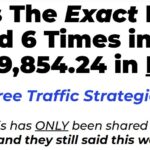The digital marketing landscape is experiencing a seismic shift. While Search Engine Optimization (SEO) continues to drive organic traffic and conversions, a new player has entered the game: Generative Engine Optimization (GEO). This emerging discipline is reshaping how businesses approach online visibility in an AI-driven world.
Modern marketers face a critical question: Should you focus on traditional SEO, embrace the new GEO approach, or master both? The answer lies in understanding how these strategies complement each other to maximize your digital presence.
What is SEO? The Foundation of Digital Visibility
Search Engine Optimization (SEO) remains the cornerstone of digital marketing success. SEO is the practice of optimizing your website and content to rank higher in search engine results pages (SERPs), particularly on Google, which processes over 8.5 billion searches daily.
Core SEO Components That Drive Results
Keyword Research and Strategy Effective SEO begins with understanding what your audience searches for. Keyword research involves identifying high-intent search terms that align with your products or services. This process includes analyzing search volume, competition, and user intent to target the most valuable keywords.
On-Page SEO Optimization On-page SEO encompasses all optimization efforts within your website. This includes crafting compelling title tags, writing descriptive meta descriptions, optimizing header structures, and ensuring content relevance. Each page should target specific keywords while providing genuine value to users.
Off-Page SEO and Authority Building Off-page SEO focuses on building your website’s authority through external signals. High-quality backlinks from reputable sources, social media engagement, and brand mentions across the web contribute to your site’s credibility and search rankings.
Technical SEO Infrastructure Technical SEO ensures search engines can crawl, index, and understand your website effectively. This includes optimizing site speed, ensuring mobile responsiveness, creating XML sitemaps, and maintaining clean URL structures.
Why SEO Remains Essential for Business Growth
SEO delivers measurable business value through multiple channels. Users conducting searches often have high purchase intent, making SEO traffic more likely to convert compared to other channels. Additionally, organic search results build trust and credibility, as users perceive top-ranking websites as authoritative sources.
The long-term benefits of SEO compound over time. Once your content ranks well, it continues driving traffic without ongoing advertising costs, making SEO one of the most cost-effective marketing strategies available.
Understanding GEO: Generative Engine Optimization Explained
Generative Engine Optimization (GEO) represents the next evolution in digital marketing. GEO focuses on optimizing content for AI-powered platforms like ChatGPT, Claude, Bing AI, and Google’s Gemini. These platforms are fundamentally changing how users discover and consume information.
Essential GEO Components for AI Optimization
AI-Focused Content Structure GEO requires restructuring content for AI consumption. Content should be broken into digestible chunks of 100-300 tokens, using clear, declarative sentences that AI systems can easily parse and reference. This approach ensures your content appears in AI-generated responses.
Brand Accuracy and Representation AI models train on vast datasets that may contain outdated or incorrect information about your brand. GEO involves actively monitoring and influencing how AI platforms represent your business, products, and services to ensure accuracy.
Buyer Journey Optimization for AI GEO prioritizes content that addresses specific stages of the AI-assisted buyer journey. This includes creating content that answers deal-breaker questions and comparison queries that users typically ask AI platforms before making purchase decisions.
External Platform Influence Just as SEO relies on backlinks, GEO depends on your brand’s presence across platforms that influence AI training data. This includes maintaining accurate information on forums, review sites, social media, and industry publications.
The Business Impact of GEO Strategy
GEO delivers unique advantages that complement traditional SEO efforts. AI platform users often demonstrate higher conversion rates because they’re asking specific, intent-driven questions. When AI platforms recommend your brand or products, it carries significant weight in the decision-making process.
As AI integration continues expanding across search engines and platforms, businesses optimizing for GEO gain competitive advantages in reaching audiences through these emerging channels.
SEO vs. GEO: Understanding Key Differences
While SEO and GEO share the goal of increasing online visibility, they require different approaches and strategies.
Platform Focus and Optimization Targets
SEO primarily targets traditional search engines like Google, Bing, and Yahoo. The focus remains on ranking for specific keywords and earning clicks to your website. GEO, conversely, optimizes for AI-driven platforms that provide direct answers and recommendations without requiring users to visit external websites.
Content Structure and User Interaction
SEO content typically follows long-form, keyword-rich formats designed to rank for multiple related terms. Users interact through traditional search queries, often using short, keyword-focused phrases.
GEO content requires concise, question-focused structures that AI systems can easily reference. Users interact through conversational queries and ask specific questions about products, services, or comparisons.
Traffic Quality vs. Volume
SEO generally drives higher traffic volumes through organic search results. However, GEO often delivers higher-quality traffic with better conversion rates, as users asking AI platforms specific questions are typically closer to making purchase decisions.
Actionable Strategies: Optimizing for Both SEO and GEO
Building Comprehensive Online Presence
For SEO Success: Focus on creating authoritative content that earns high-quality backlinks from reputable sources. Develop comprehensive resource pages, industry guides, and thought leadership content that other websites want to reference and link to.
For GEO Excellence: Monitor your brand’s representation across platforms that influence AI training data. Actively participate in industry forums, maintain updated business profiles, and ensure consistent brand messaging across all digital touchpoints.
Content Creation That Serves Both Strategies
Dual-Purpose Content Structure: Create content that satisfies both SEO and GEO requirements. Start with comprehensive, keyword-optimized articles for SEO, then break key information into AI-friendly chunks with clear headings and declarative statements.
FAQ and Comparison Optimization: Develop detailed FAQ sections that address common customer questions. Structure comparison pages with clear feature-by-feature breakdowns that both search engines and AI platforms can easily understand and reference.
Addressing Deal-Breaker Questions
SEO Approach: Target long-tail keywords that capture specific customer concerns and objections. Create detailed content that addresses common hesitations and provides thorough explanations.
GEO Approach: Identify the final questions customers ask before purchasing and create concise, direct answers. Focus on specific concerns like pricing, compatibility, support, or implementation that might influence purchase decisions.
Local Optimization for Both Channels
Local SEO Implementation: Optimize Google My Business profiles, create location-specific landing pages, and target geo-modified keywords. Encourage customer reviews and maintain consistent NAP (Name, Address, Phone) information across all platforms.
GEO Local Strategy: Ensure AI platforms have accurate local information about your business. Create location-specific content that addresses regional needs, preferences, and regulations that AI platforms might reference for local queries.
Why Your Business Needs Both SEO and GEO
The digital marketing landscape is evolving rapidly, and businesses cannot afford to choose between SEO and GEO. Each strategy addresses different user behaviors and platform preferences, creating comprehensive coverage of your target audience.
Complementary Strengths Create Competitive Advantage
SEO provides the foundation for online visibility and drives consistent traffic from users actively searching for solutions. GEO captures emerging search behaviors and higher-intent users who rely on AI platforms for decision-making support.
Together, these strategies ensure your brand remains discoverable regardless of how users prefer to search for information. This comprehensive approach future-proofs your marketing efforts as AI continues reshaping the digital landscape.
Investment in Long-Term Digital Success
Both SEO and GEO require ongoing investment and optimization, but they deliver compounding returns over time. Early adoption of GEO strategies positions your business ahead of competitors who haven’t yet recognized the importance of AI optimization.
Conclusion: Embracing the Hybrid Approach
The future of digital marketing isn’t about choosing between SEO and GEO—it’s about mastering both. As AI platforms continue gaining popularity and integration with traditional search engines deepens, businesses need comprehensive strategies that address all user preferences and behaviors.
Start by auditing your current SEO performance and identifying opportunities to incorporate GEO principles. Focus on creating content that serves both traditional search engines and AI platforms, ensuring your brand remains visible and competitive across all digital channels.
The businesses that thrive in the coming years will be those that recognize this shift early and invest in both SEO and GEO optimization. By taking action now, you can build a robust digital presence that drives results regardless of how the search landscape continues to evolve.
Ready to optimize your content for both SEO and GEO? Start by auditing your current digital marketing strategy and identifying opportunities to incorporate AI-focused optimization techniques alongside your existing SEO efforts.










